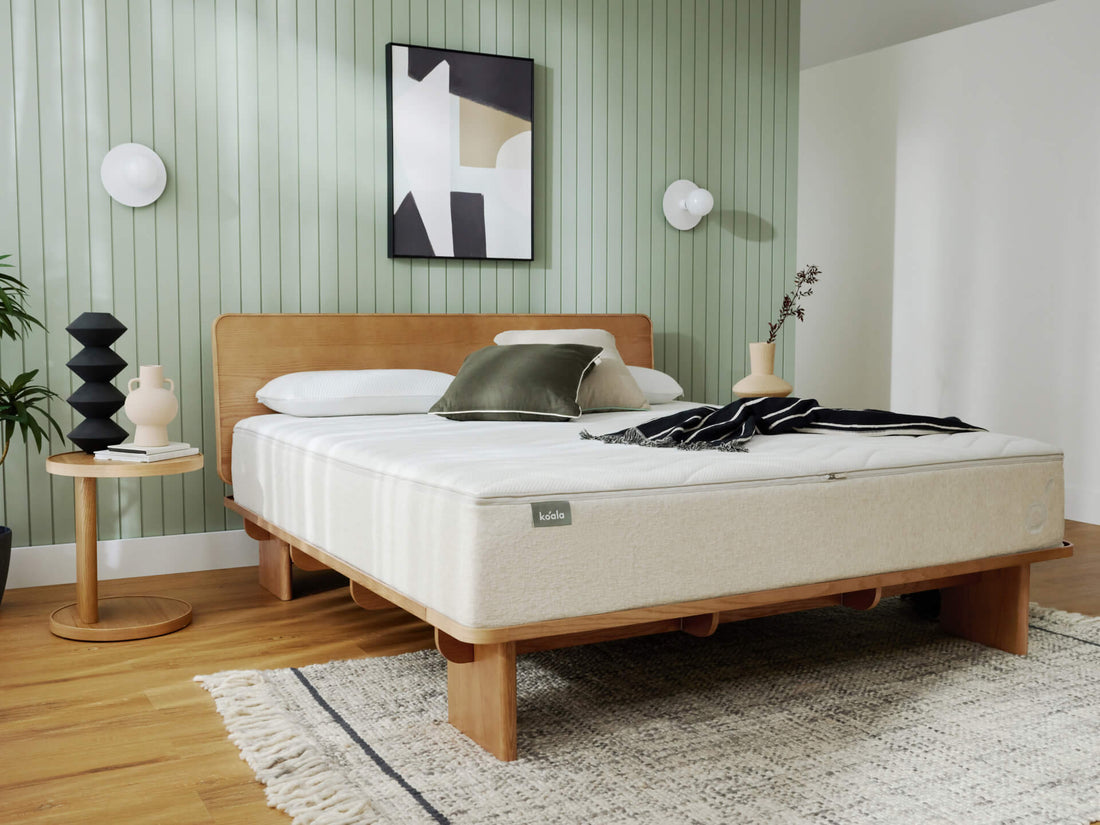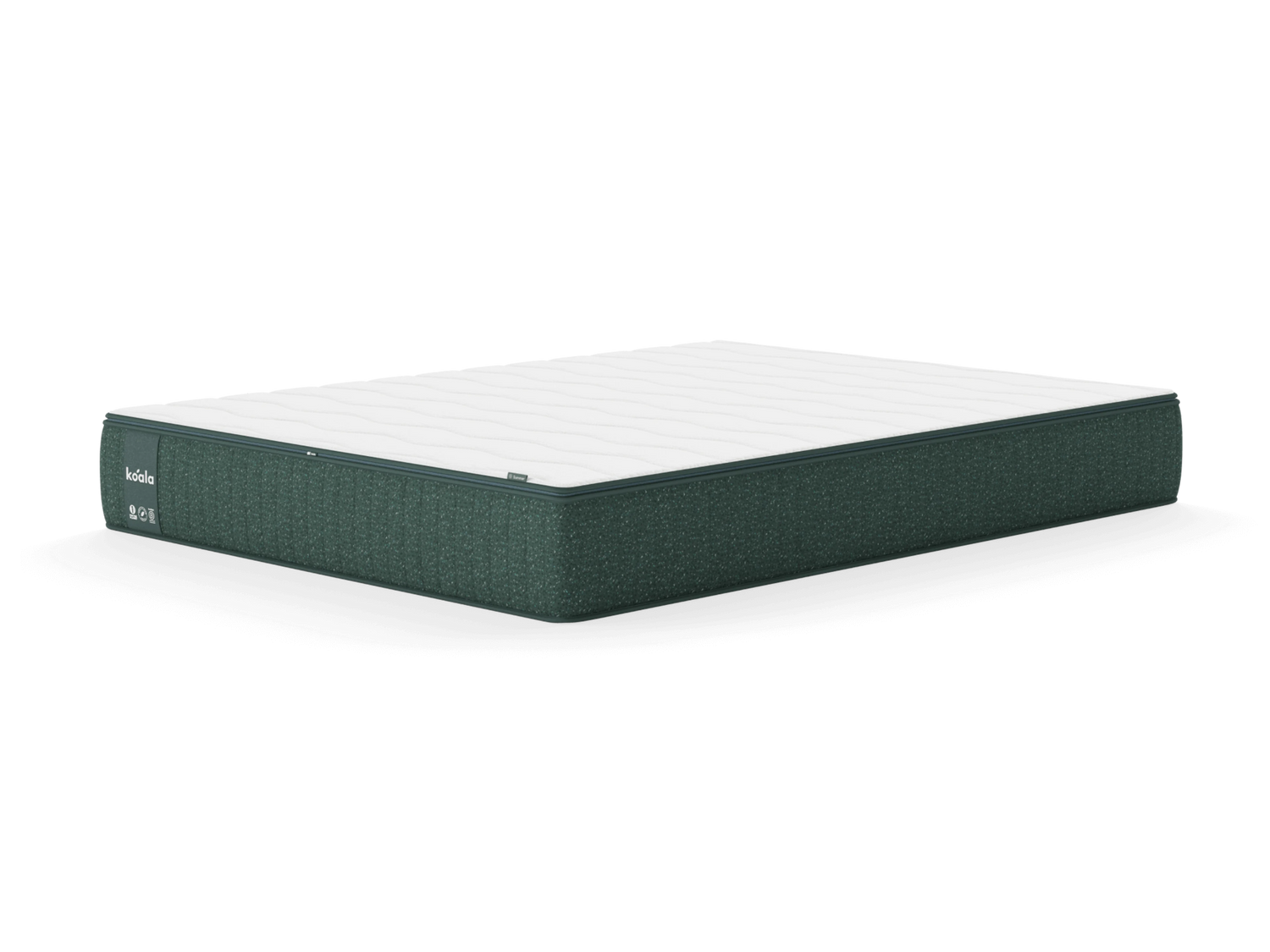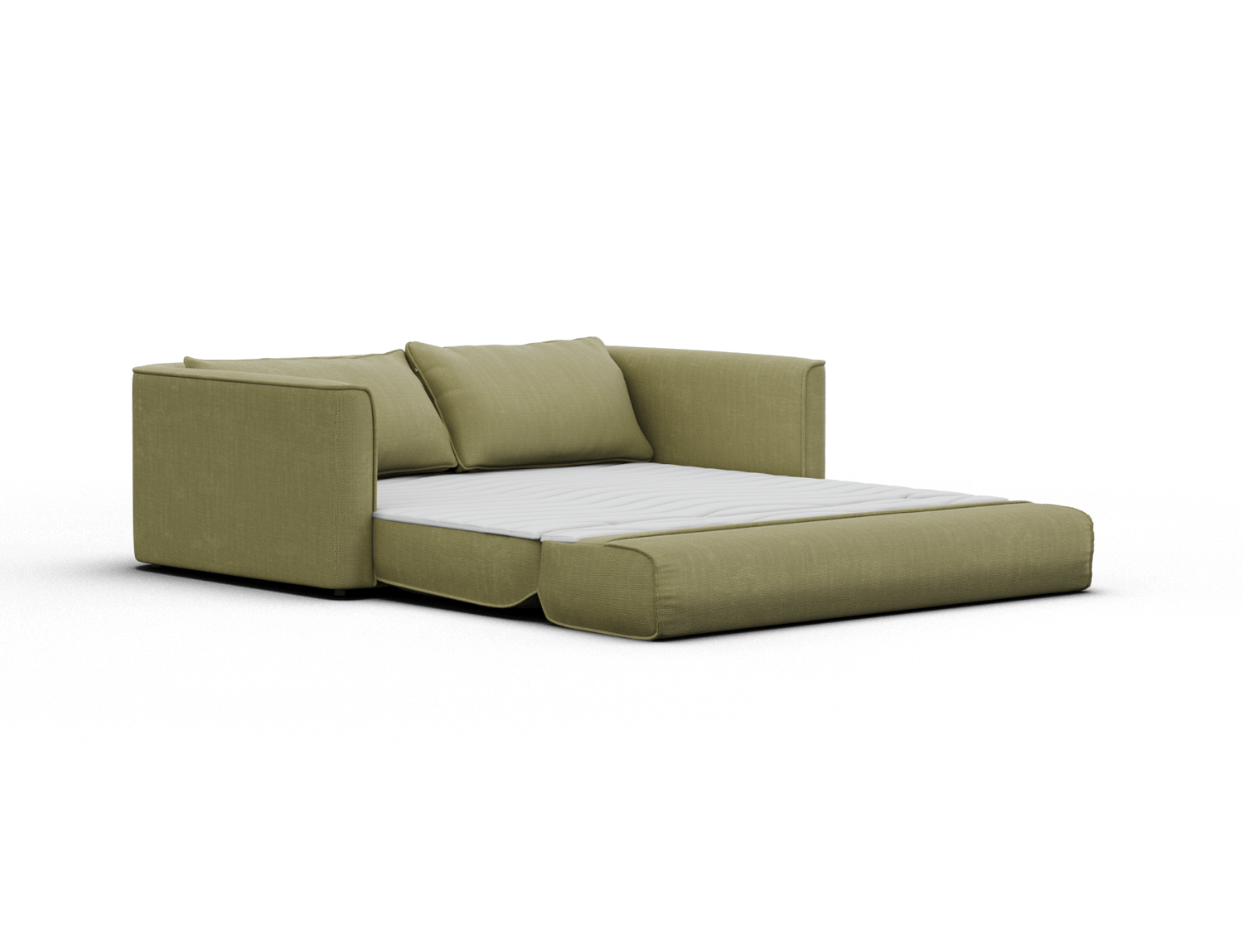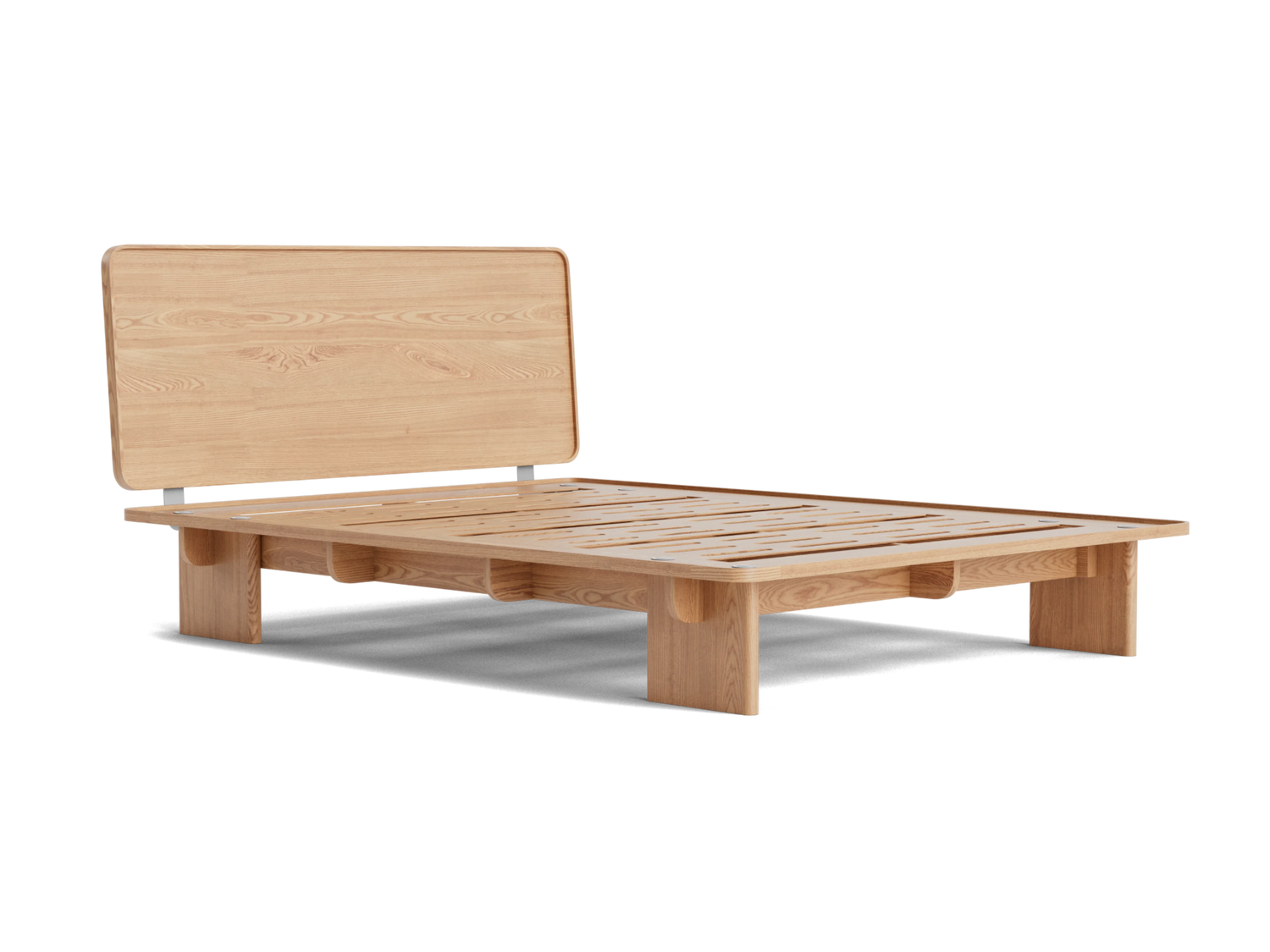
Do spring mattresses cause back pain? We get the skinny.
Share
Springs can be acknowledged for having done their part in plenty of good things from the past. Pogo sticks, slinkies, trampolines — we loved them all. But while they’re a lot of fun, sleeping on a spring mattress from the ‘90s is a whole other ball game, and it’s probably not doing you any favours. If you’ve woken up with a sore back (again) after sleeping on your dated spring, you might start questioning a few things. Namely, do spring mattresses cause back pain? And, if so, what is the best type of mattress for your back? We spoke to physiotherapist and co-founder of Brisbane Spine Clinic Justin Lin for insight on back-friendly beds. He shares his wisdom on what a good mattress should do and how to pick the best fit for your body.
Back pain and mattresses: what’s the deal?
As something you spend a third of your life laying on (or more if you’re lucky), your mattress has a major impact on your back. For this reason, experts will usually consider your sleep situation when assessing the source of a bad back or lower back pain. According to Justin, our beds can cause back pain because they don’t offer the proper support. “A mattress that’s so hard it doesn’t have any flexibility or bounce is not great,” he says. “Likewise, a mattress that’s so soft you sink into it and are encased like a mummy is also not ideal.” Spring mattresses can be ideal for reaching this middle ground of support. But here’s the thing — over the years, they tend to end up sagging after general wear and tear. The springs lose tension, the comfort layers lessen, and you and your back end up getting the short end of the stick when it comes to getting a good night’s kip. It’s a ‘win and then gradually over time lose’ kinda situation, and it’s something we wanted to fix.
Will a new mattress help my back pain?
Short answer: yes. Long answer: when you choose the right one. A mattress is not a one-size-fits-all approach. To relieve back pain, it’s all about choosing something that satisfies your needs and preferences. And this means figuring out whether or not springs are right for you. Our beds can impact us to such a degree that those treating sore backs can tell when someone’s been sleeping on a mattress that isn’t quite right for them. Justin explains. “Someone with a lack of natural curve in their back who is sleeping on a soft mattress, like memory foam, won’t get the support they need,” he says. “They might sink down into the mattress without bouncing back up, so they’re stuck in the forward-flex position.” On the other hand, Justin describes why a super straight back might need something a little softer. “Those with military back postures might be sleeping on hard mattresses that don’t offer full-contact support. Their hips and thoracic spines are touching, but their lower backs are unsupported all night, accentuating their problem.” With all that in mind, and now that we know that dated springs are what can potentially lead to back ache, which mattress is good for back pain? We’re glad you asked.
 Our mattresses have the sort of features that’ll make you wanna go to bed, like ergonomic support zones and comfortable and caring layers.
Our mattresses have the sort of features that’ll make you wanna go to bed, like ergonomic support zones and comfortable and caring layers.Which mattress type is best for back pain?
A new mattress can work wonders on your sore back. But pain or no pain, choosing a mattress that works for your body is crucial. Here are a few things worth noting when you’re shopping for a new one. ✅ Materials. Foam, polyester, TENCEL™ Lyocell and tempered steel. Choose supportive and quality materials in your bed, and that’s precisely the type of sleep you’ll have. ✅ Quality. A mattress is a hefty investment but one you only make every decade — if you get it right. Opt for brands that offer quality construction, a solid warranty and the option of a flexible return if you don’t love it (hint, hint). ✅ Firmness. A mattress should hit the sweet spot — not too firm and not too soft. Did you know our Calm As Mattress has a flippable comfort layer for those nights you want a little more plush? Well, you do now. ✅ Size. Make room for you, the kids and the dog. A bed needs to provide you with enough space to stretch out and support your back properly. So in this case, bigger is always better.
The Koala-ty your back deserves
At Koala, our mattresses have the sort of features that’ll make you wanna go to bed and never come out from under your duvets. The ergonomic support zones take the pressure off the important parts, like your back, and the mattresses all come with a bunch of comfortable and caring layers, such as the uber-responsive Kloudcell® Foam. And just as we expect our mattresses to take care of us, so we should take care of them. “It doesn’t matter how good a mattress is,” says Justin. “If you don’t protect it like any other material, it will deteriorate.” Bugger. The solution? We recommend regularly washing your sheets, sometimes deep cleaning your mattress and always sleeping with a mattress protector. It’s a to-do list worthy of going up on the fridge next to the shopping list. Ready to level up your mattress game but have no idea where to start? This little quiz will help you find your mattress match.
Time to give yourself a pat on the back
Do spring mattresses cause back pain? Not always. But if yours was made before the first Avatar, it might be time for an upgrade (yep, it’s been that long). Shop the range of Koala mattresses, and treat your body to the good stuff.



